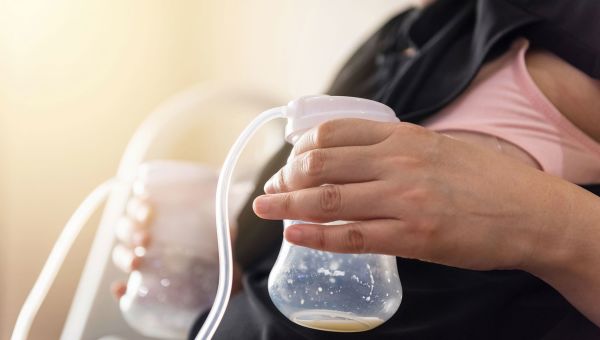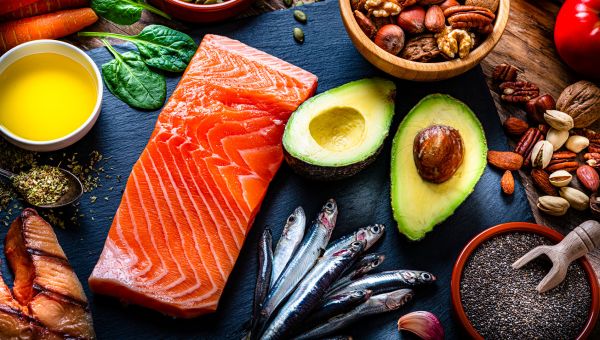8 most common breastfeeding questions
From drinking caffeine to when you can get pregnant again, we’ve got answers to your top questions.
Updated on March 20, 2024

Among the questions new parents may have, many involve breastfeeding. You may wonder if you’ll have to change your diet to enhance the quality of your breast milk, whether breastfeeding is a reliable form of birth control, and if you can have a glass of wine while nursing.
You may also wonder whether breastfeeding is the best option for you and your family. While the World Health Organization recommends exclusive breastfeeding for the first 6 months of life to promote infant health and development, supplementing or even using formula exclusively are also options that can help keep your baby well-nourished.
Teresa Merritt, RN, a lactation consultant and childbirth educator in Chattanooga, Tennessee, offers answers to some of the most common breastfeeding questions.

Can you drink alcohol? Use marijuana?
You may have heard the term “pump and dump.” This refers to the process of expressing your breast milk (usually using a breast pump), then discarding it if you’ve had alcohol to drink. Does it work and is it even necessary? It depends, says Merritt.
The alcohol level in your milk remains at about the same level as alcohol in your blood, so "pumping and dumping" doesn’t necessarily speed up the removal of alcohol from milk. If you have one drink, you should wait at least two hours before it clears your body and then safely breastfeed, says Merritt. But it’s important to stick to that one drink if you’re nursing—and wait for it to flush out of your system. Consuming any amount of alcohol not only has the potential to decrease milk production, it can affect an infant’s growth and development.
What about using marijuana? The Centers for Disease Control and Prevention says that using marijuana can allow harmful chemicals to pass to the infant through breast milk (or secondhand smoke exposure). These substances could potentially affect a newborn’s brain development and cause hyperactivity, poor cognitive function, and other long-term issues. People who are breastfeeding should avoid using marijuana or any marijuana-containing products, including those with CBD or THC, whether edibles, oils, or other concentrates.

Can you breastfeed and drink caffeine?
When you’re up several times a night with a newborn, coffee may start to feel necessary in the morning. And for most people, drinking a moderate amount of caffeine while breastfeeding is perfectly fine. (Just stick to a limit of around 200 milligrams, or two 8-ounce cups of coffee, per day.)
If your child was born prematurely, has colic, or sleeping problems, however, talk to your healthcare provider (HCP) about whether you should decrease or eliminate caffeine, at least temporarily. (Colic is when an otherwise healthy baby cries for three or more hours per day for no obvious reasons.)

How should you handle breastfeeding around other kids?
The first time you breastfeed your new baby in front of your older children (or any other children), they may be very curious, ask questions, and even want to get a closer look at what’s going on. Merritt says it’s best to approach the moment as straightforwardly as possible.
You can explain that your body produces milk to feed your baby. You can also emphasize how incredible our bodies are, Merritt suggests. By making breastfeeding seem like a natural process, you’re helping your kids understand how the human body works without shame or embarrassment.

Are there foods you should or shouldn’t eat?
The quality of your diet may affect the quality of your breast milk. So it's a good idea to eat a variety of fruits and vegetables, whole grains, and healthy proteins like beans, chicken, or fish. A 2016 study published in The American Journal of Clinical Nutrition found a connection between diet and breast milk and emphasized the importance of foods rich in healthy fatty acids (like nuts, canola oil, olive oil, and fish) and vitamins (including vitamins A, C, B6, and B12). These vitamins can be found in foods like walnuts, carrots, leafy greens like collards and spinach, citrus fruits (like oranges, lemons, and limes), avocados, eggs, and fortified cereals (which have vitamins added to them).
Seafood is also a great addition to your diet when you’re breastfeeding. Fish such as salmon and sardines are great sources of fatty acids. Avoid fish with high amounts of mercury, however. These include shark, swordfish, king mackerel, and tuna. Ask your HCP if you should be taking a multivitamin to fill in any nutrition gaps.

How much water do you need to drink?
Breast milk is mostly water, so staying hydrated is crucial. You may even notice that you are thirstier when nursing. To make sure you’re drinking enough fluids, the Academy of Nutrition and Dietetics recommends drinking up to 16 glasses of water per day. Note that some of that water can come from foods, such as melons, soups, berries, and vegetables. One strategy is to keep a water bottle next to you when you’re nursing, making sure it’s always refilled.
You can tell you’re drinking enough water if your urine is light yellow. If it’s dark yellow, that’s usually a sign you need to drink more water. For variety, try adding cut-up fruit to your glass or mixing it up with herbal iced tea.

How can you know your baby is getting enough to eat?
Merritt says she gets asked this question every single day, sometimes a dozen times a day.
Most newborns will need to eat every two to three hours. They’ll usually spend about 10 to 15 minutes on each breast, according to the American College of Obstetricians and Gynecologists. “You can tell when your newborn has had enough to eat because they will look like they are in a drowsy and relaxed state,” says Merritt. “At the beginning of a feeding, their hands are likely to be curled up and tight and they’ll appear more alert. By the end of the feeding, their hands will soften and open up and they’ll be more relaxed.” This is sometimes called being “milk drunk.”
Another way to gauge if your child is getting enough to eat is by looking in their diaper. Newborns should urinate every one to three hours. If your child is having less than four wet diapers a day or irregular bowel movements, see your pediatrician.

Can people who are breastfeeding get pregnant?
The very short answer to that is yes.
At your six-week postpartum checkup, your HCP may say it is okay to start having sex again (though it may take longer to feel ready—everyone has their own timeline). At that point, you should discuss birth control options, even if you’re still breastfeeding.
While breastfeeding can act as a natural form of birth control, you can still get pregnant while breastfeeding. There are many circumstances that can affect how well breastfeeding-as-birth-control works. These include the number of feedings the baby has per day and your menstrual cycle history, says Merritt. So if you are having sex and you are not planning on becoming pregnant again right away, take the safer route by using birth control.

Does breast surgery restrict people from breastfeeding?
Many people who have had a previous breast or nipple surgery may wonder if it will affect their ability to breastfeed. The answer depends on the type of procedure, says Merritt. Some surgeries affect milk supply more than others. If the nipple and areola (the dark-colored skin surrounding the nipple) were not removed from the breast during surgery, for example, you’re less likely to have issues with producing breast milk.
Every case is different, but the good news is that many people who have had breast surgery may be able to breastfeed in some capacity.
If you’ve had breast surgery and choose to breastfeed, talk to your HCP about the best way to monitor your baby to make sure they’re gaining the recommended amount of weight. If they are not, you may need to supplement with formula or donor milk (human milk that has been donated by someone else). If you have questions about donor milk, ask your HCP about its risks and benefits and how to obtain donor milk that has been pasteurized and is free of infections or illegal substances so that is it safe for your baby.

Centers for Disease Control and Prevention. Breastfeeding. Alcohol. Page last reviewed: February 9, 2021.
Centers for Disease Control and Prevention. Breastfeeding. Maternal Diet. Page last reviewed: September 2, 2021.
Centers for Disease Control and Prevention. Breastfeeding. Breast Surgery. Page last reviewed: February 1, 2021.
James JE. Maternal caffeine consumption and pregnancy outcomes: a narrative review with implications for advice to mothers and mothers-to-be. BMJ Evidence-Based Medicine 2021;26:114-115.
Dror DK, Allen LH. Overview of Nutrients in Human Milk. Adv Nutr. 2018;9(suppl_1):278S-294S.
Bravi F, Wiens F, Decarli A, et al. Impact of Maternal Nutrition on Breast-Milk Composition: A Systematic Review. Am J Clin Nutr. 2016 Sep;104(3):646-62.
National Library of Medicine. Metoclopramide. Last Revision: December 20, 2021.
Academy of Nutrition and Dietetics. How Much Water Do You Need? Last reviewed March 2020.
Academy of Nutrition and Dietetics. Nursing Your Baby? What You Eat and Drink Matters. Last reviewed March 2022.
American College of Obstetricians and Gynecologists. A Partner's Guide to Pregnancy. Last reviewed: November 2020.
American College of Obstetricians and Gynecologists. Breastfeeding Your Baby. Last updated: May 2021.
More On


video

article

slideshow


video


video
